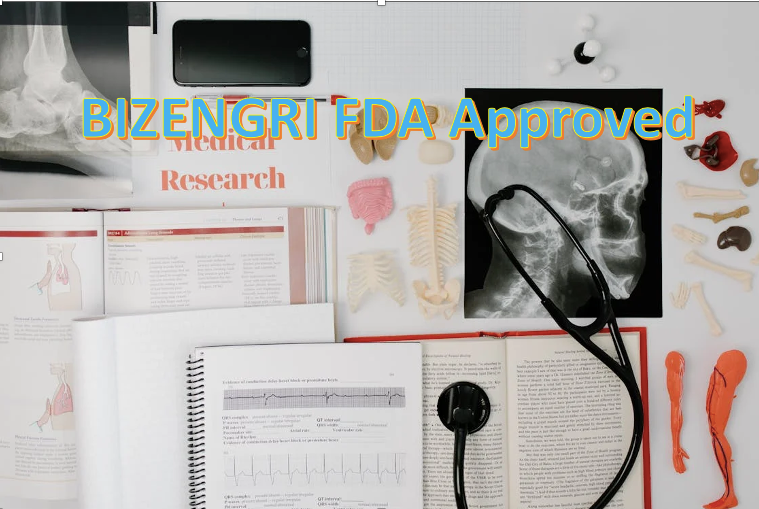Bronchodual (Fenoterol and ipratropium) is a combination of a beta-agonist and an anticholinergic drug. It is used in the long term management of bronchospasm as in patients with asthma and chronic obstructive pulmonary diseases.
Bronchodual (Fenoterol & Ipratropium) Uses:
Note: It is not approved in the US.
-
Bronchospasm:
- Used for the treatment of bronchospasm associated with acute severe exacerbation of COPD or bronchial asthma in patients of 12 years and more 12 years of age.
Bronchodual (Fenoterol & Ipratropium) Dose in Adults
Note:
- Starts therapy under medical supervision (eg, hospital setting).
- May consider home administration in exceptional cases (eg, severe symptoms or experienced patients requiring higher doses) when rapid-acting beta-agonist bronchodilator therapy is ineffective.
Bronchodual (Fenoterol & Ipratropium) Dose in the treatment of Bronchospasm due to acute severe exacerbation of bronchial asthma or COPD:
- Nebulization:
- Usual dose: 4 mL (ipratropium bromide 0.5 mg/fenoterol hydrobromide 1.25 mg in normal saline);
- subsequent dosing is individualized based on clinical response;
- if symptoms are not relieved within 10 minutes of administration, if the effects of treatment last are less than 3 hours, or if prior effective dosage fails to provide adequate relief, reassess therapy as this may indicate seriously worsening of asthma.
Dose in Children:
Refer to adults dosing,
Bronchodual (Fenoterol & Ipratropium) Pregnancy Risk Category: B
- In animal reproductive trials employing this combination administered through inhalation, adverse effects were not noted.
- Animal reproductive studies utilising oral versions of each component revealed adverse effects.
Fenoterol and ipratropium use during breastfeeding:
- If ipratropium is secreted in breast milk is unknown.
- Fenoterol is excreted in breast milk, according to trials that were not intended to be clinical.
- When supplied to breastfeeding mothers, the manufacturer advises caution.
Bronchodual (Fenoterol & Ipratropium) Dose in Kidney Disease:
The manufacturer’s labeling doesn't provide any dosage adjustments.
Bronchodual (Fenoterol & Ipratropium) Dose in Liver disease:
The manufacturer’s labeling doesn't provide any dosage adjustments
Side effects of Bronchodual (Fenoterol & Ipratropium):
-
Cardiovascular:
- Atrial Fibrillation
- Cardiac Arrhythmia
- Tachycardia
- Hypertension
- Hypotension
- Ischemic Heart Disease
- Palpitations
- Prolonged QT Interval On ECG
- Supraventricular Tachycardia
-
Central Nervous System:
- Dizziness
- Nervousness
- Psychological Disorder
- Headache
-
Dermatologic:
- Diaphoresis
-
Endocrine & Metabolic:
- Hypokalemia
- Hyperglycemia
-
Gastrointestinal:
- Constipation
- Nausea
- Xerostomia
- Diarrhea
- Vomiting
-
Genitourinary:
- Urinary Retention
-
Hypersensitivity:
- Hypersensitivity Reaction ( Bronchospasm, Laryngospasm, Oropharyngeal Edema, Anaphylaxis, Angioedema, Skin Rash, Urticaria)
-
Neuromuscular & Skeletal:
- Weakness
-
Ophthalmic:
- Accommodation Disturbance
- Increased Intraocular Pressure
- Mydriasis
- Acute Angle-Closure Glaucoma
- Eye Pain
-
Respiratory:
- Bronchospasm (Inhalation-Induced)
- Throat Irritation
- Cough
- Pharyngitis
Contraindications to Bronchodual (Fenoterol & Ipratropium):
- Hypersensitivity to ipratropium, sympathomimetic amines, fenoterol, atropine (and its derivatives), or any component of the formulation;
- tachyarrhythmias
- Hypertrophic obstructive Cardiomyopathy
Warnings and precautions
-
Bronchospasm
- Discontinue use if paradoxical bronchospasm occurs.
- Paradoxical bronchospasm can occur occasionally with inhaled bronchodilators; this should not be confused with inadequate treatment.
-
Cardiovascular:
- It is not recommended to use other sympathomimetic drugs concurrently; it is important to closely monitor patients who are receiving concomitant therapy using other sympathomimetics.
- Excessive use of inhaled sympathomimetics has been linked to serious adverse events including death.
-
CNS effects
- Negative effects like tremor, blurred sight, dizziness and/or accommodation disorder can occur.
- Patients need to be warned against risky activities like operating heavy machinery or driving.
-
Hypersensitivity reactions
- There have been reports of acute hypersensitivity reactions, such as rash, bronchospasm, and urticaria.
-
Hypokalemia
- Fenoterol may result in hypokalemia. Patients with severe asthma who are getting concurrent therapy (such as steroids or xanthine derivatives) that could make their hypokalemia worse should be watched out for.
-
Asthma
- Use of Ipratropium for acute episodes of bronchospasm is not recommended.
-
Cardiovascular disease
- Use with caution in patients with cardiovascular illness (such as those who have recently experienced a MI, hypertension, heart failure, vascular problems, or arrhythmia); beta-agonists can raise blood pressure and heart rate and can stimulate or excite the central nervous system.
- Beta-agonists can potentially make myocardial infarction or arrhythmias more likely.
-
Cystic Fibrosis:
- Cystic Fibrosis patients should be cautious about using it. It may increase the likelihood of gastrointestinal motility disturbances.
-
Diabetes:
- Diabetes mellitus patients should be cautious about beta-agonists as they can increase serum glucose.
-
Glaucoma:
- Patients with narrow-angle or glaucoma should be cautious. Avoid putting nebulizer solution into the eyes.
- Patients who present with eye pain/discomfort or blurred vision visual halos or color images as a result of red-eye due to corneal congestion and corneal swelling should be evaluated immediately.
-
Hyperthyroidism:
- Hyperthyroidism: Use caution. It may stimulate thyroid activity.
-
Pheochromocytoma:
- Patients with pheochromocytoma should be cautious.
-
Prostatic hyperplasia, bladder neck obstruction
- Patients with bladder neck obstruction or prostatic hyperplasia should be cautious.
-
Seizure disorder:
- Use with caution in patients with seizure disorders; beta-agonists may result in CNS stimulation/excitation.
Monitoring parameters:
- Spirometry (FEV, FVC);
- potassium
How to administer Bronchodual (Fenoterol & Ipratropium)?
Inhalation: Nebulization:
- Wash hands before and after treatment.
- After each treatment wash and the dry nebulizer.
- Twist open the top of one unit-dose vial and squeeze the contents into the nebulizer reservoir.
- Gently swirl the nebulizer reservoir and connect it to the face mask.
- Avoid leakage around the mask (worsening of narrow-angle glaucoma, temporary blurring of vision, or eye pain may occur if mist gets into the eyes).
- The use of swimming goggles or a mouthpiece is recommended to prevent nebulized solution from contacting the eye(s).
- Connect the nebulizer to the compressor.
- Sit in a comfortable, upright position.
- Insert on the face mask and turn on the compressor.
- If wall oxygen is available, administer the solution at a flow rate of 6 to 8 liters per minute.
- Breathe calmly and deeply until no more mist is formed in the nebulizer (about 10 to 15 minutes). At this point, treatment is finished.
Mechanism of action of Bronchodual (Fenoterol and ipratropium):
Ipratropium:
- Bronchodilation occurs when acetylcholine is blocked at parasympathetic locations in the bronchial smooth muscles.
Fenoterol:
- By activating beta receptors, it relaxes the bronchial smooth muscles
The onset of action:
- Ipratropium:
- Bronchodilation: Within 15 minutes;
- Peak effect: 1 to 2 hours
- Fenoterol:
- Bronchodilation: 5 minutes;
- Peak effect: 30 to 60 minutes
Duration:
- Ipratropium: 4 to 8 hours
- Fenoterol: 6 to 8 hours
Absorption:
- Ipratropium: Inhalation: Estimated bioavailability: 7% to 28%
- Fenoterol: Inhalation: Estimated bioavailability: 7%.
Distribution:
- Ipratropium/fenoterol: 10% to 39% of the dose is deposited in lungs following inhalation
Protein binding:
- Ipratropium: <20%
- Fenoterol: ~40%
Half-life elimination:
- Ipratropium: 1.6 hours
- Fenoterol: ~3 hours
- Excretion: Urine, feces
International Brand Names of Fenoterol and ipratropium:
- Bronchodual
- Duovent
- Duovent N
- Duovent UDVS
- Iperol
- Iperol Forte
- Ipradual
- Respidual
- Atrovent Comp. HFA
- Atrovent Comp.HFA
- Berodual
- Berodual HFA
- Berodual N
- Berodual PA
- Berodual Solution
- Berodualin
- Starduol
- Duovent UDV
- Aerodual
- Atrovent Comp
- Atrovent Comp HFA
Fenoterol and ipratropium Brand Names in Pakistan:
There are no brands available in Pakistan.




